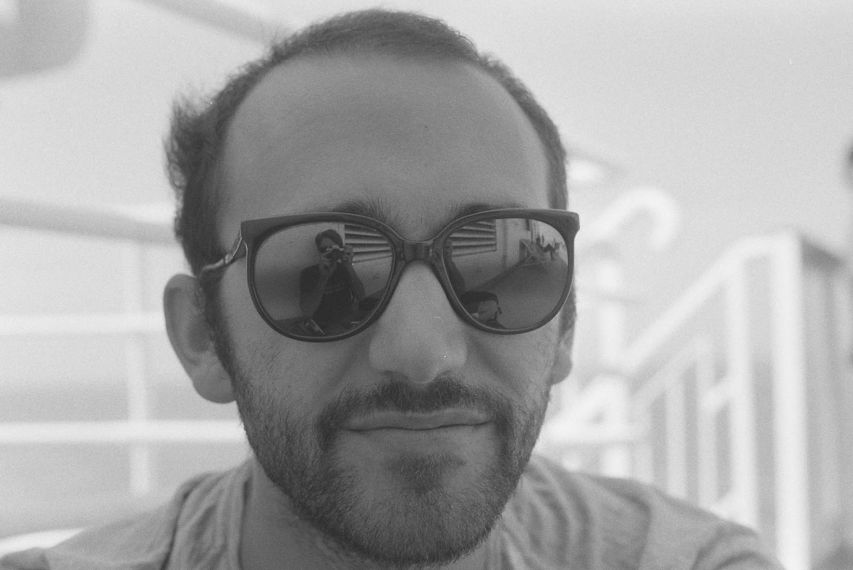Basile Koechlin is a PhD student in Music from Geneva, Switzerland. His passion about the royal musicians in Uganda led him to UVA complete his doctorate.
You worked on an album a documentary film around Uganda’s royal musicians. Tell us more about this project.
Koechlin: The project started from my research on the royal music of Buganda, a kingdom located on the shores of Lake Victoria, in Uganda, Africa. According to this tradition, musicians used to go to the palace and play a variety of instruments, such as drums of various sizes, flutes, large wooden xylophones, or buzzing lyres in complex interlocking patterns to produce a richly layered music. This stopped in 1966, when the palace was attacked by the national army and the kingdom abolished.
When I started researching this music in the summer of 2016, my brother had just finished his training as a cinematographer and we decided to combine our sensibilities and skills to produce a condensed dive into this century-old tradition: an album combining archival and contemporary recordings, and a documentary presenting a personal encounter with the bearers of this tradition. Overall, we collaborated with over 30 musicians over the course of two years. After we finished the film, I went back to Uganda in 2019 to screen it for the main protagonists at times gathering over 300 people, and the responses were very positive. The musicians were satisfied and this was important to us, because although my brother and I love this music, we didn’t intend to praise or, worse, victimize the remaining royal musicians while solely blaming the kingdom for the waning of this tradition.
The film has been screened in several festivals in Europe, Africa, and North America, where it won the award for the best soundtrack in Dallas, Texas. COVID delayed our plans of organizing a screening for the current king, but it is still a priority in the agenda. The album too was selected among the best releases of 2021 by Pan African Music. This is our first time and we’re really pleased by the enthusiasm so far.
How did you get interested in this research?
Koechlin: Quite randomly actually. In Spring 2016, I was doing a MA in ethnomusicology at the School of Oriental and African Studies (SOAS) in London and I didn’t yet have a clear topic for my thesis. As I was researching online, I stumbled upon the work of Singing Wells, a non-profit organization driven by two recording studios, one based in London, the other in Nairobi, working to preserve and promote the traditional music of the region. Their last project at the time had revived a royal drum ensemble from Buganda by putting archival documents produced by scholars in dialogue with a former royal musician and a team of young players. The project was also spearheaded by a Ugandan scholar, James Isabirye, which resonated with my engagement with post-colonial perspectives. Having worked in several museums and sound archives, and as a drummer and young scholar, I was very interested in this project aiming at turning ‘archived’ materials into embodied performances. I went to Uganda that summer to collaborate with Pr. Isabirye, and the documentary and album are in a way a tribute to his work.
Your research is global and you’re also an international student yourself. Can you tell us a little bit of your story before coming to UVA?
Koechlin: I grew up in Geneva, Switzerland, and left the city to do a B.A. in Anthropology and History of Religions in two different nearby cities. I moved often after that, my projects and studies driving me to London, Brussels, Kampala, and Charlottesville, building friendships and professional connections along the way.
What is the next step after UVA?
Koechlin: I want to continue merging the academic, museum, and artistic worlds, and the music department here is very supportive of such approaches. I specifically came to UVA to work with Noel Lobley, and we are now collaborating with a museum in Brussels to curate a digital exhibition on various electronic music scenes from the African continent. I’m also still working with the artist collective that runs the Nyege Nyege festival in Uganda. In addition to releasing the album and producing a podcast on their artist residency, I also curated a stage at the last in-person edition of their festival in 2019, and will again for the next edition this year.
What would be your advice to students looking for global opportunities at UVA?
Koechlin: Don’t hesitate to share your projects with the people you want to collaborate with, wherever they are, be it getting in touch with an artist via Instagram, or scholars and institutions in other parts of the world you want to be in dialogue with.
More Information:




